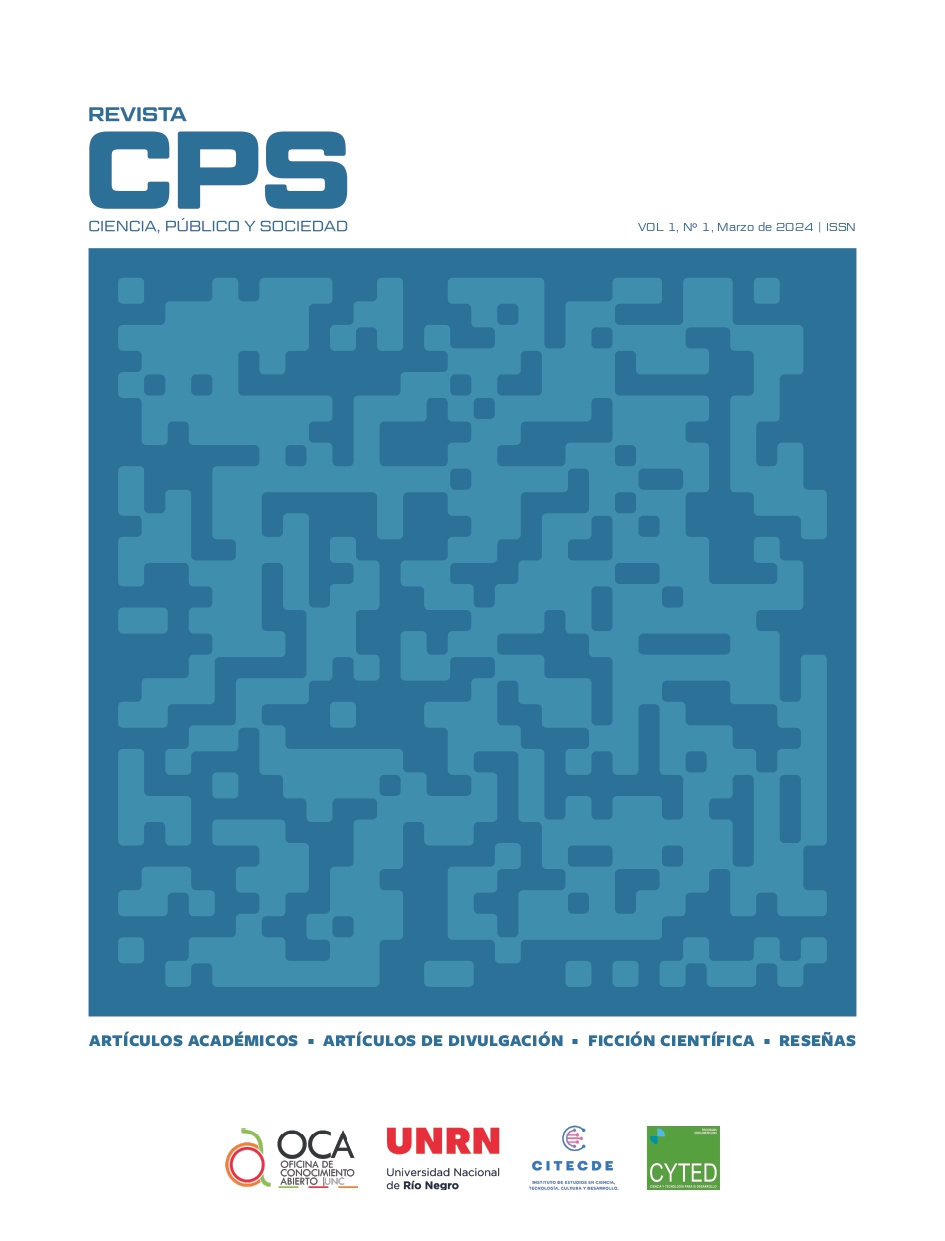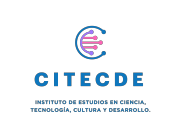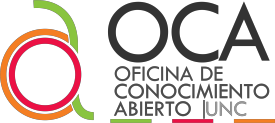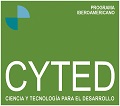Expert advice to public policy: the challenges for a reasonable dialogue in times of problems and post-normal science
Keywords:
public communication of science, governmental experts, COVID, post-normal scienceAbstract
ChatGPT
Here's the text with corrected spacing:
The article examines the practices of governmental expert advice from the theoretical field of public communication of science, as a particular case of the interactions between experts and specific audiences conditioned by epistemic and extra-epistemic factors that affect their dynamics and results. The approach is based on the premise that the contexts of post-normal science, as characterized by Funtowicz and Ravetz, can no longer be considered exceptional circumstances but are nowadays the usual environment in which the links between agents take place. After a brief review of the main critical issues that cut across formalized counseling practices, it discusses how these became more acute and visible during the COVID-1 pandemic. Finally, a series of reflections are presented on the lessons to be learned from the experience in the event of a crisis of similar magnitude.
References
Achiam, M. (2024): Post-Normal Science Communication? The Role of Science Centres and Museums in an Uncertain Future, en D. Jontes, A. Skapin y M. Achiam, (eds.): The Ecosystem of Science Communication in the Post-Truth Era: Perspectives, Contexts, Dynamics, Liubliana, University of Liubliana Press, pp. 29-49.
Albornoz, M. (2007): Los problemas de la ciencia y el poder, Revista Iberoamericana de Ciencia, Tecnología y Sociedad CTS, 3, (8), pp. 47-65.
Albornoz, M., Barrere, R., Osorio, L. y Sokil, J. (2020). La respuesta de la ciencia ante la crisis del Covid-19, en RICYT (ed.): El Estado de la Ciencia 2020, Buenos Aires, RICYT, pp. 115-133. Disponible en https://bit.ly/3zSJTda [último acceso: 15-04-2024].
Besley, T. y Velasco, A. (2020): Politicians can’t hide behind scientists forever – even in a pandemic, LSEThinks | Politics and global governance, 6 de mayo. Disponible en https://bit.ly/3jPVe5y [último acceso: 15-04-2024].
Brüggemann, M., Lörcher, I. and Walter, S. (2020): Post-normal science communication: exploring the blurring boundaries of science and journalism. Journal of Science Communication, 19, (03), A02. Disponible en https://doi.org/10.22323/2.19030202 [último acceso: 15-04-2024].
Brusselaers, N. et al. (2022): Evaluation of science advice during the COVID-19 pandemic in Sweden, Humanities and Social Sciences Communications, 9, (91), pp. 1-17. Disponible en: https://doi.org/10.1057/s41599-022-01097-5 [último acceso: 15-04-2024].
Cartlidge, E. (2015): Why Italian earthquake scientists were exonerated, Science, 10 de febrero. Disponible en: https://bit.ly/3hP3DEO [último acceso: 15-04-2024].
Cortassa, C. (2012). La ciencia ante el público, Buenos Aires, EUDEBA.
Cortassa, C. (2017): Epistemic interactions within and outside scientific communities: Different or analogous processes?, en L. Reyes Galindo y T Duarte (eds): Inter-cultural Communication within Science and Technology Studies, Londres y Nueva York: Palgrave-Macmillan, pp. 125-145.
Cortassa, C. (2023): The paradigm shift into post-normal science communication: taking advantage of the Covid-19 experience, en M. Bauer y B. Schiele (eds): Science Communication: taking a step back to move forward, París, CNRS Éditions, pp. 398-405.
Cuculiansky, S. (2020): Qué dice la ciencia post-normal del coronavirus y de lo que vendrá después de la pandemia, La Nación, 13 de mayo. Disponible en https://bit.ly/337Ea4p [último acceso: 15-04-2024].
Day, N. (2013): The politics of posterity: expert advice and long-term decision making”, The Guardian, 12 de abril. Disponible en: https://bit.ly/3jtworQ [último acceso: 15-04-2024].
De Miguel, B. (2020): Arancha González Laya: ‘Es tiempo de política no de tecnocracia’, El País, 14 de mayo. Disponible en: https://bit.ly/3bvEmhD [último acceso: 15-04-2024].
Edenhofer, O. y Kowarsch, M. (2015: Cartography of pathways: a new model for environmental policy assessments, Environmental Science Policy, 51, pp. 56–64.
Fidanza, E (2020): Epidemiólogos toman el gobierno, Perfil, 2 de mayo. Disponible en: https://bit.ly/35caXrq [último acceso: 15-04-2024].
Flores Crespo, P. (2013): El enfoque de la política basada en la evidencia. Análisis
de su utilidad para la educación de México, Revista Mexicana de Investigación Educativa, 18, (56), pp. 265-290.
Freedman, L. (2020): Scientific Advice at a Time of Emergency. SAGE and Covid-19, The Political Quarterly, 91, (3). Disponible en https://doi.org/10.1111/1467-923X.12885 [último acceso: 15-04-2024].
Fundación BBVA (2019): European Values Study. Part one: Values and attitudes in Europe regarding the public sphere, Madrid, Fundación BBVA. Disponible en: https://bit.ly/2R0b1lR [último acceso: 15-04-2024].
Funtowicz, S. e Hidalgo, C. (2021): Pandemia posnormal: las múltiples voces del conocimiento, PAPELES de relaciones ecosociales y cambio global, 154, pp. 109-122.
Funtowicz, S. y Ravetz, J. (1990): Uncertainty and quality in science for policy. Dordrecht, Kluwer Academic Publishers.
Funtowicz, S. y Ravetz, J. (1993): Science for the post-normal age. Futures, 25, (7), pp. 739-755.
Gluckman, P. (2014): The art of science advice to government, Nature, 507, pp. 163-165.
Hoppe, R. (2009): Scientific advice and public policy: expert advisers’ and policymakers’ discourses on boundary work, Poiesis Prax, 6, pp. 235–263.
Horton, R. (2020): Offline: Independent science advice for COVID-19—at last, The Lancet, 395, 9 de Mayo. Disponible en https://doi.org/10.1016/S0140-6736(20)31098-9 [último acceso: 15-04-2024].
INGSA LAC (2020): The role of scientific knowledge in policy making: Scientists and policy makers perspective. Disponible en https://bit.ly/3JxKWpv [último acceso: 15-04-2024].
Jung, A. (2021): COVID-19 preparedness and response: implications for future pandemics. National responses to COVID-19: drivers, complexities, and uncertainties in the first year of the pandemic, BMJ, 375, e068954. Disponible en http://dx.doi.org/10.1136/bmj-2021-068954 [último acceso: 15-04-2024].
Laspra, B. (2022): Pandemias e infodemias: desinformación en tiempos post-normales ARBOR Ciencia, Pensamiento y Cultura, 198, (806), a671. Disponible en https://doi.org/10.3989/arbor.2022.806001 [último acceso: 15-04-2024].
Loeb, A. y Gil, D. (2020): Let’s Create an Elite Scientific Body to Advise on Global Catastrophes, Scientific American Blogs, 30 de abril. Disponible en: https://bit.ly/2F7K5Oz [último acceso: 15-04-2024].
MINCyT (2022): 5° Encuesta Nacional de Percepción Pública de la Ciencia, Buenos Aires, MINCyT.
Ministerio de Salud de la República Argentina (2024): Boletín Epidemiológico Nacional, Semana 14, N°699. Disponible en https://bit.ly/3xVoQuo [último acceso: 15-04-2024].
Mormina, M. (2022): Knowledge, Expertise and Science Advice During COVID-19: In Search of Epistemic Justice for the ‘Wicked’ Problems of Post-Normal Times, Social Epistemology, 36, (6), pp. 671–685. Disponible en: https://doi.org/10.1080/026917 28.2022.2103750 [último acceso: 15-04-2024].
Nath, Ch. (2008): How do I brief policymakers on science related issues, SciDev.net, 7 de febrero. Disponible en: https://bit.ly/2EDPjS8 [último acceso: 15-04-2024].
Nath, Ch. (2012): How to tell policymakers about scientific uncertainty, SciDev.net, 20 de enero. Disponible en: https://bit.ly/3lw9Toa [último acceso: 15-04-2024].
National Academies of Sciences, Engineering, and Medicine (2015): Does the Public Trust Science? Trust and Confidence at the Intersections of the Life Sciences and Society, Washington, The National Academies Press. Disponible en: https://bit.ly/3bypyi5 [último acceso: 15-04-2024].
Nowotny, H. (2007): How Many Policy Rooms are There?: Evidence-Based and Other Kinds of Science Policies, Science, Technology & Human Values, 32, p. 479-490.
OCDE (2015a): Scientific Advice for Policy Making: The Role and Responsibility of Expert Bodies and Individual Scientists, OECD Science, Technology and Industry Policy Papers, No. 21, París, OECD Publishing, Disponible en http://dx.doi.org/10.1787/ 5js33l1jcpwb-en [último acceso: 15-04-2024].
OCDE (2015b): Daejeon Declaration on Science, Technology, and Innovation Policies for the Global and Digital Age. Disponible en: https://bit.ly/3vWrdwz [último acceso: 15-04-2024].
OCDE (2022): First lessons from government evaluations of COVID-19 responses: A synthesis, OCDE. Disponible en https://bit.ly/3QzsuB1 [último acceso: 15-04-2024].
OCTS/OEI (2020): Ciencia para las políticas públicas. Estructura, procesos y principios del asesoramiento científico, Papeles del Observatorio N° 17, informe elaborado por Carina Cortassa, Buenos Aires, OCTS/OEI. Disponible en https://bit.ly/3UrKnDQ
Peha, J. (2006): “Science and Technology Advice for Congress: Past, Present, and Future”, Renewable Resources Journal, vol. 24, nº 2, pp. 19-23.
Pielke, R. (2007): The honest broker. Making sense of science in policy and politics, Cambridge, Cambridge University Press.
Pielke, R. (2023). Improve how science advice is provided to governments by learning from “experts in expert advice”, PLoS Biol, 21, (2), e3002004
. Disponible en https://doi.org/10.1371/journal.pbio.3002004 [último acceso: 15-04-2024].
Rainey, S., Mormina, M., Lignou, S., Nguyen J. y Larsson, P. (2021): The Post-Normal Challenges of COVID-19: Constructing Effective and Legitimate Responses, Science and Public Policy, 1, (10). Disponible en: https://doi.org/10.1093/scipol/scab037 [último acceso: 15-04-2024].
Ribeiro Duarte, T. (2020): Ignoring scientific advice during the Covid-19 pandemic: Bolsonaro’s actions and discourse, Tapuya: Latin American Science, Technology and Society, 3, (1), pp. 288-291. Disponible en https://doi.org/10.1080/25729861.2020.1767492 [último acceso: 15-04-2024].
Sampedro, J. (2020): Lo que dirán de nosotros, El País, 19 de marzo. Disponible en https://bit.ly/3lWunGY [último acceso: 15-04-2024].
Sarewitz, D. (2020): Pandemics Science and Politics, Issues in Science and Technology, 25 de mayo. Disponible en: https://bit.ly/3jQ3mD5 [último acceso: 15-04-2024].
Stevens, A. (2020): Governments cannot just ‘follow the science’ on COVID-19, Nature Human Behaviour, 4 (560), 14 de Mayo. Disponible en https://doi.org/10.1038/s41562-020-0894-x [último acceso: 15-04-2024].
Sutherland, W., Spiegelhalter, D. y Burgman, M. (2013): Twenty tips for interpreting scientific claims, Nature, 503, pp. 335-337.
Tyler, C. (2013): Top 20 things scientists need to know about policy-making, The Guardian, 2 de diciembre. Disponible en: https://bit.ly/3mu3eLC [último acceso: 15-04-2024].
UNESCO (2022): Crónicas III Foro Abierto de Ciencias para América Latina y el Caribe, París y Montevideo, UNESCO y Oficina Regional de Ciencias de la UNESCO para América Latina y el Caribe. Disponible en https://bit.ly/43Yly5O [último acceso: 15-04-2024].
Wilsdon, J., Allen, K., & Paulavets, K. (2014). Science advice to governments: diverse systems, common challenges (V. 1), Sussex, University of Sussex. Disponible en https://hdl.handle.net/10779/uos.23414900.v1 [último acceso: 15-04-2024].
Downloads
Published
Issue
Section
License

This work is licensed under a Creative Commons Attribution-NonCommercial-ShareAlike 4.0 International License.
Commercial use of the original work and any derivative works is not permitted, and distribution of derivative works must be made under a license equal to that which governs the original work.






